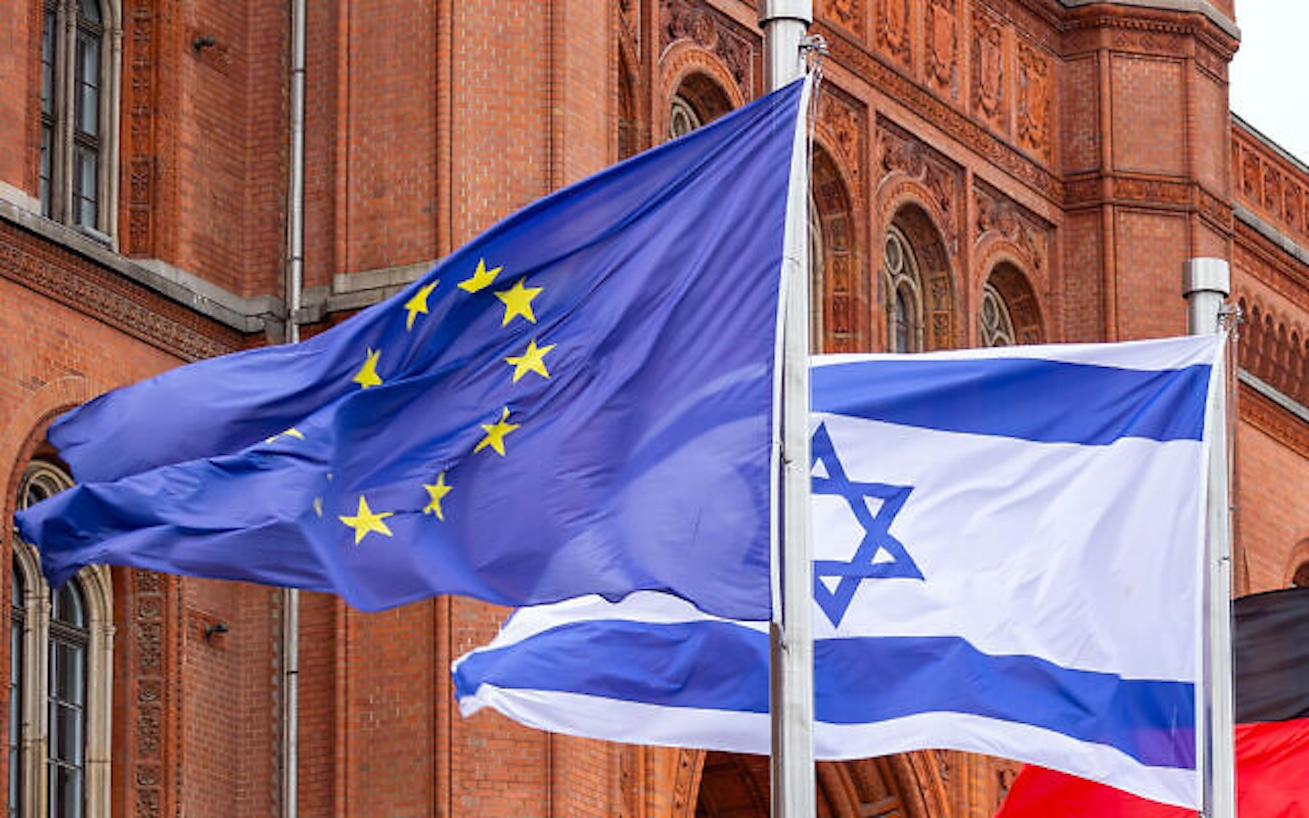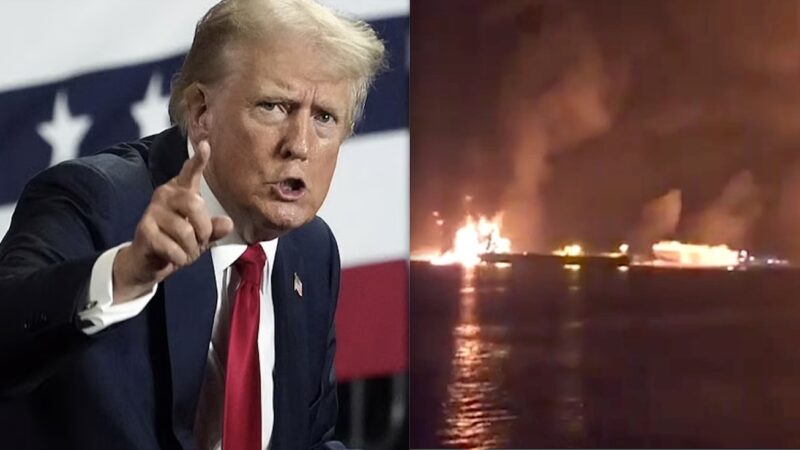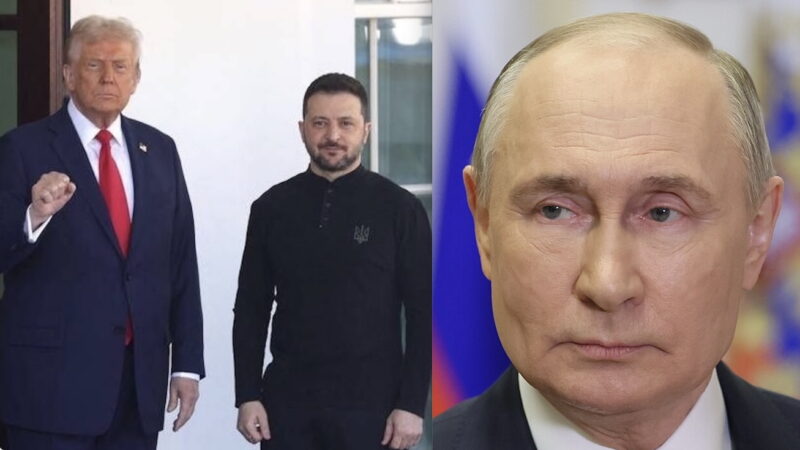EU Warns Citizens To Stockpile Supplies for Possible Nuclear Disaster

by Gospa News Editorial Staff
In a surprising new report, the European Union (EU) is telling its citizens to prepare for possible disasters, including a nuclear conflict. This warning comes from former Finnish President Sauli Niinisto and highlights the need for people to have enough supplies to last at least three days.
The EU wants its citizens to stock up on basic items that could help them survive if there’s a crisis. This includes food, water, and other essentials.
The report’s title is chilling: “Preparing Europe fora more dangerous world”
Safer Together Strengthening Europe’s Civilian and MilitaryPreparedness and Readiness
On 20 March, the President of the European Commission, together with the High Representative / Vice President, asked Special Adviser Sauli Niinistö – Former President of the Republic of Finland – to write a report on how to enhance Europe’s civilian and defence preparedness and readiness by October 2024.
This report has the purpose of assessing the complex challenges the EU and its Member States face in a volatile geopolitical landscape and present recommendations to enhance the preparedness and readiness of the EU01. The following questions guided the work on the report:
- how to improve risk identification, anticipatory analysis, strategic foresight, and early warning as a
driver for coordinated action; - how to mainstream civilian and military preparedness across sectors to overcome a silos approach
and enhance EU resilience;
- how to ensure the necessary civilian and military capabilities are fit for purpose to prevent, recover
from and respond to crises of different origins while ensuring that response mechanisms and
structures are well coordinated (EU and national level) and; - how to foster civil-military cooperation as well as public-private partnerships and leverage
international partnerships to strengthen our preparedness;
how to enhance the awareness and resilience of EU citizens and societies.
The analysis in the report builds on and complements various relevant work strands that are already ongoing, notably in the context of horizontal crisis management, the implementation of the Strategic. Compass as well other relevant EU strategies, initiatives and policies across sectors, including the civil protection, defence industry, hybrid threats, critical infrastructure, cyber security, disinformation, space, military mobility, maritime security, health and food security, economic security, etc.
It draws on consultations with stakeholders across the EU institutions and bodies, Member States, relevant international organisations, representatives of the private sector and experts from think tanks and academia.
The report is intended to inform, inter alia, future actions to be proposed by the High Representative and the Commission in the light of the Political Guidelines for the next Commission (2024-2029), as put forward by President von der Leyen, and her mission letters to the incoming Commissioners and High Representative. It is offered moreover as an independent analytical assessment that may provide inspiration to decision-makers in all EU institutions and Member State capitals.
The European Union’s security environment has in many ways taken a turn for the worse in recent years
Report by Sauli Niinistö, former President of the Republic of Finland,
The world is more dangerous and crisis-prone. The continuation of peace cannot be taken for granted and security cannot be seen as a given, as is manifested by the increasing damage caused by climate change. We must be better prepared, not only to survive, but also to thrive in this new reality. This calls for an overhaul of the way we Europeans see the Union’s role in keeping us all secure.
The objective of European integration after the Second World War was to create lasting peace among its members. It was seen that only peace and security make development and people’s well-being possible. This created a new European spirit and a new idea of cooperation that has taken long steps forward. This is a great achievement of the countries and the community that form today’s EU.
Despite all the wars, conflicts and disasters that have taken place in the EU’s neighbourhood and beyond, the EU and its Member States have been secure from immediate existential threats since the and of the Cold War.
During the first decades after the Cold War, it became easy to think that security is not something that is a very present concern in our daily lives. Yet, in fact, we need security for everything. This applies equally to individuals, communities, States, and the whole European Union. We cannot see and feeln security when we have it, which makes its loss all the more dramatic and painful.
At the start of this decade, Europe has woken up to a new reality. The COVID-19 pandemic was a crisis of a nature and magnitude for which all Member States and the EU as a whole were insufficiently prepared. Russia’s full-scale invasion of Ukraine showed that it takes two to maintain peace, but only one to start a war. Russia’s invasion also underlined Putin’s long-held perception that the West and Western people are weak. Moreover, the increasing damage caused by extreme weather events is forcing Europeans to ask not only how climate change will affect future generations, but also what we need to prepare for today.
The structures, processes and legal basis of the EU have been created over decades without our own security needs at their core. For example, the EU’s common foreign, security and defence policies, as well as cooperation on internal security, were all launched in the 1990’s when direct threats to the EU were perceived to be at a historic low. What’s more, the gravity of the threat of climate change for our livelihoods and way of life had not yet been fully understood.
The optimism of that time stands in sharp contrast to today’s security environment. This is increasinglyshaped by great power competition and the readiness of authoritarian States to use violence to assert their territorial or political claims. In addition, instrumentalised migration and, for example, disruptions to global supply chains underline the multifaceted nature of threats. We need to make sure our legislation, working methods and tools match the challenges we face. However, at its heart, preparedness is an attitude.
A new mindset to preparedness
The need for better preparedness forces us to consider our mindset and even our values, and how to defend them from a new perspective. A prerequisite for preparedness is to understand that security is the foundation of everything we hold dear. Security is a public good – the most important thing that everyone needs. It is the precondition for maintaining our values, as well as being a necessity for our economic success and competitiveness.
If we lose security, it takes with it our well-being and our plans for the future. Our democratic political systems and rule of law are based on the protection of individuals’ rights and the provision of a broad open space for people to exercise their freedoms. This open space is exploited by malicious actors, as we constantly see in the diverse hybrid operations conducted against us.
Open societies provide both an ideal model for individuals to exercise their rights and a perfect oppor- tunity to hurt us. A key underlying question that has guided the preparation of this report is how to protect our values without undermining them in the process. Lenin instructed the Bolsheviks during the Russian civil war to ‘probe with bayonets: If you find mush you continue.
If you find steel you stop’. A hundred years on, today’s opportunistic actors use the same method. They target us by looking for weaknesses in our protection, take advantage of our political divisions, any lack of social cohesion and harmful economic dependencies, trying to weaponise anything.they can against us. In being well prepared, a fundamental requirement is not to be an easy target.
Finland PM: “Preparedness begins and ends with the trust of citizens that the political community”
A change in mindset is needed to build the trust that allows us to do this as the whole of society. This change needs to take place across the full spectrum of the EU’s activities. Preparedness requires a high level of trust between public authorities, Member States, EU institutions, the private sector, and civil society.
Ultimately, preparedness begins and ends with the trust of citizens that the political community they live in is worth protecting and defending. Evolving threats, such as the sabotage of critical infrastructure and cyberattacks, continue to bring private and public actors’ security interestsmever closer. The systematic sharing of information and experiences is crucial for further deepening trust between different actors to prepare for and address these threats together.
Nazi Skeletons in Finland and Sweden’s Closets. Behind the Helsinki Official Induction into NATO
Leaders have a responsibility to articulate clearly to citizens the threats we need to be prepared for. Raising public awareness of the risk landscape without creating panic and involving citizens more closely in building security is of paramount importance. We have several good examples of this in Europe. New. options are currently being considered in many Member States – not only in the form of conscription, but also through other legal obligations citizens have to contribute to security and preparedness in different capacities. Voluntary engagement and participation in the activities of civil society organisations should also be further encouraged in this context. More active involvement can be asked when citizens trustthat their leaders are prepared to keep them secure and are able to protect them throughout any crisis.
A common interest like preparedness requires common responsibility.
Each individual has a stake in building and maintaining security, for example by choosing what kind of information sources we trust. Understanding everyone’s responsibility for their own security and that of those closest to them makes it easier to accept the actions and investment needed from Member States and the EU to build stronger preparedness. EU citizens are already expressing clearly their expectations for the Union to become a stronger security actor. In a Eurobarometer poll conducted across Member States in spring this year, for example,
77% of respondents confirmed their support for the EU’s common security and defence policy and 71% stated that they want the EU to do more to reinforce the production of military equipment.
There is also an increasing awareness of the need for preparedness for disasters on a personal level. In a September 2024 Eurobarometer, 58% of respondents replied that they did not consider themselves well prepared for a crisis in the area where they live. Almost two-thirds feel that they need more infor-
mation to prepare for disasters and emergencies.
MAIN SOURCES
READ MORE ON EUROPEAN UNION WEBSITE
EU – Safer Together Strengthening Europe’s Civilian and Military Preparedness and Readi




I I think that this speaks more to the sickness of the masses than it does to the few, I tend to self identify as Christian, but, obviously there too, Satanic thought has held it’s sway; so of course, we get all of this.